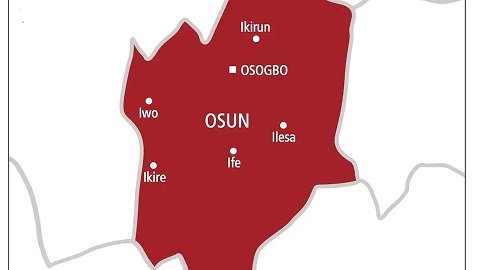[ad_1]
By Seun Abolade
Lagos State despite its small landmass continues to serve as a strategic hub for social, economic and industrial impact, as well as a centre of commerce and entertainment for Nigeria and Africa. Lagos accounts for 26.7 percent of Nigeria’s total GDP and more than 50 percent of the country’s non-oil revenue. It hosts the highest number of financial institutions and manufacturing concerns and is home to the largest and busiest airport and seaports in the country. As Africa’s sixth largest economy and one of the world’s fastest-growing megacities, it boasts estimated 21 million inhabitants, and is also projected to become the third-largest city in the world by 2050. It is stating the obvious that tremendous pressure is exerted on the state government and state resources year-on-year to meet critical needs such as provision of social services, maintenance of existing and construction of new social amenities such as roads, schools, hospitals etcetera.
Other important exigencies for the state government include payment of salaries and emoluments of its workers and pensioners, as well as the provision of essential services like public transportation, housing, waste management and security to mention a few. Regardless of the greater burden placed on the state government to provide essential amenities, as well as build new ones, owing to the ever-increasing population caused by high migration of people into the state in search of work, business and opportunities, the state government has consistently demonstrated leadership as an innovative, problems-solving government. The Office of Public Private Partnerships (OPPP) has been pivotal as an enabler of the transformation of Lagos into a thriving economy and Africa’s model megacity. In line with the T.H.E.M.E.S development blueprint of the Babajide Sanwo-Olu administration, PPP structure in the last 12 months played a significant role in facilitating infrastructure development by setting the stage for the execution of several impactful projects and initiatives that cut across many sectors.
Let me start with the two most recent landmark projects. Exactly on December 30, 2022, the competitive bidding processes for the construction of the proposed $2.5bn Fourth Mainland Bridge, a 38-km long state-of-the-art, eco-friendly toll road and bridge, were successfully concluded with Messrs CCECC-CRCCIG Consortium named as the preferred bidder, while Messrs MOTA-ENGIL (Nigeria & Africa), CCCC & CRBC Consortium emerged as the reserved bidder. The bridge, which will connect Lagos Island via Lekki, Langbasa and Baiyeku towns, across Lagos Lagoon to Itamaga in Ikorodu, will upon completion, cut down travel time from the Lekki corridor to Ikorodu, as well as spur further socio-economic development in the state. It will be executed under PPP arrangement and is expected to become the second-longest bridge in Africa. The bid process started on November 27, 2019, with the Lagos State Government issuing Request for Expression of Interest (REOI), followed by Request for Quotation (RFQ) on February 10, 2020, and later Request for Proposal (RFP). Governor Sanwo-Olu is expected to turn the sod in the first quarter of this year to signal the formal commencement of construction work, while the timeline for completion is four years.
Although the Lagos Metropolitan Area Transport Authority (LAMATA) is the implementing agency of the Blue Rail and Red Rail projects, OPPP played a very crucial role in the concession of various services to ensure the smooth running of the rail systems. So, the excitement seen was expected when Governor Sanwo-Olu, on December 21, 2022, launched the completion of civil infrastructure for the first phase of Lagos Rail Mass Transit (LRMT) Blue Line rail system covering a 13-km stretch from Marina to Mile 2, with daily passenger carriage of 200,000. The second phase is a 14-km stretch and will extend to Okokomaiko to make the total length of 27 kilometers to move 500,000 passengers daily on completion. This is the first-of-its-kind transport infrastructure in the history of Nigeria to be executed by any state government.
Another impactful accomplishment of the OPPP was the ongoing construction of about 8,000-bed spaces at the Lagos State University (LASU), Ojo. On completion, the six blocks of hostels being executed under PPP arrangement, will significantly solve the accommodation problem for the students, enhance learning, as well as boost the state government’s reviewed policy to convert the university from non-residential to on-campus residency. The PPP Office equally delivered several affordable quality mass housing through PPP financing model with many of them completed, while some are ongoing. These include the Housing Estate Development at Igbogbo, to be built on 8.8 hectares of land by the state government in partnership with Messrs M-Bridge Limited. Another project is the development of 20 hectares of land in Imota into a mini city of 3,546 units by the state government and Messrs Brooke Assets and Resources Limited.
The state government is also building multiple apartments at Abraham Adesanya in Ajah, and over 80 apartment units at Ikeja GRA. Bayview Estate in Ikate Elegushi; Lateef Jakande Housing Estate in Igando; Badagry Housing Estate; Prince Abiodun Ogunleye Housing Estate, Igbogbo; and Babatunde Olushola Benson Housing Estate, Ibeshe are also on the list among several others. The PPP’s impact also touches on human capital development and wealth creation. Across the 20 LGAs and 37 LCDAs where various infrastructure developments are ongoing, local professionals such as engineers, architects, town planners, builders, and project managers, as well as artisans – bricklayers, welders, carpenters, plumbers, tilers, aluminum fabricators are engaged to hone their skills. Workmen, women, local contractors, and suppliers of building materials like cement, sand, gravel, wood and paints also earn income. Several capacity-building and team bonding programmes were also organised for staff of OPPP to promote efficiency and enhance quality service delivery.
- Abolade writes in from Lekki, Lagos
[ad_2]






